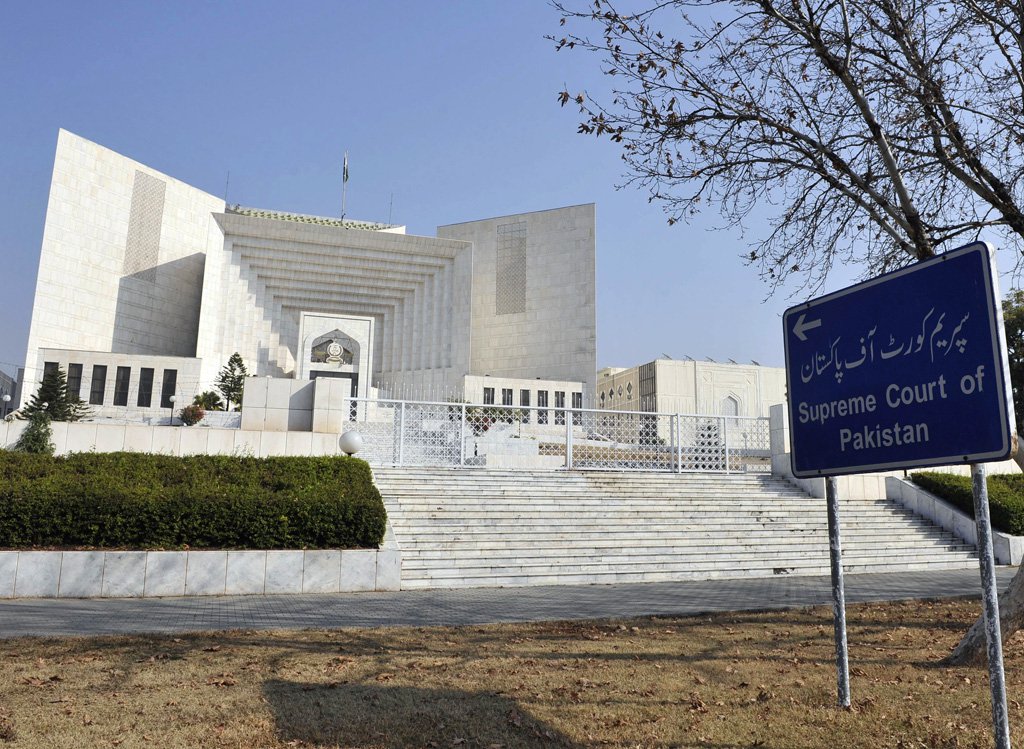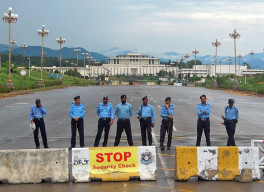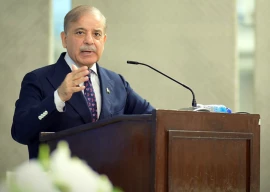
A three-judge apex court bench, headed by Chief Justice of Pakistan (CJP) Asif Saeed Khosa, also stayed the PHC’s October 18 order till November 13, the next date of hearing.
The CJP in his remarks said the United States created Guantanamo Bay detention camps outside its territory but the government wanted to keep people in detention within its territorial limits.
Attorney General for Pakistan (AGP) Anwar Mansoor Khan said as per Section III of Article 245, the PHC was not empowered to hear the case in the first place.
The CJP said no person could be put under house arrest for more than three-month without court permission. “Do you want to build a Guantanamo Bay in Pakistan?” he asked, adding that the issue is an extremely serious issue.
The AGP said under the K-P Actions Ordinance 2019, sentences are awarded according to the Pakistan Penal Code (PPC). The CJP asked if a person could be put under house arrest for fifteen-years. “Can a person be arrested because of his intention to commit a crime?” he added.
The AGP said incidence of terrorism had decreased after establishment of detention centres. The CJP in his remarks said the court would form a larger bench to decide the matter and later ordered that the petitions would be presented before a larger bench. The hearing was adjourned till November 13.
The PHC last week struck down ‘Action in Aid of Civil Power Regulation Ordinance’ and directed the Khyber Pakhtunkhwa (K-P) government to share a list of inmates in internment centres with the police department. It had also directed the inspector general of police to take over all such centres.
A two-member PHC bench, comprising Chief Justice Waqar Ahmad Seth and Justice Musarrat Hilali, has issued the order as it heard a writ petition with regard to the 25th Constitutional Amendment and the promulgation of the ‘Action in Aid of Civil Power Regulation’ in the newly merged tribal districts.
During the hearing, petitioner Shabir Hussain Gigigyani asked the court how the provincial government could extend ‘Action in Aid of Civil Power’ regulation to the erstwhile Federally Administered Tribal Areas (Fata) after passage of the 25th constitutional amendment.
He said through the governor’s ordinance, the law had been extended to the entire province. The court had later ruled to nullify the ordinance, terming it illegal, unlawful and contrary to the Constitution.


1731975305-0/Untitled-design-(40)1731975305-0-165x106.webp)
1731975060-0/Untitled-design-(39)1731975060-0-165x106.webp)






1731929357-0/Express-Tribune-(6)1731929357-0-270x192.webp)






COMMENTS
Comments are moderated and generally will be posted if they are on-topic and not abusive.
For more information, please see our Comments FAQ